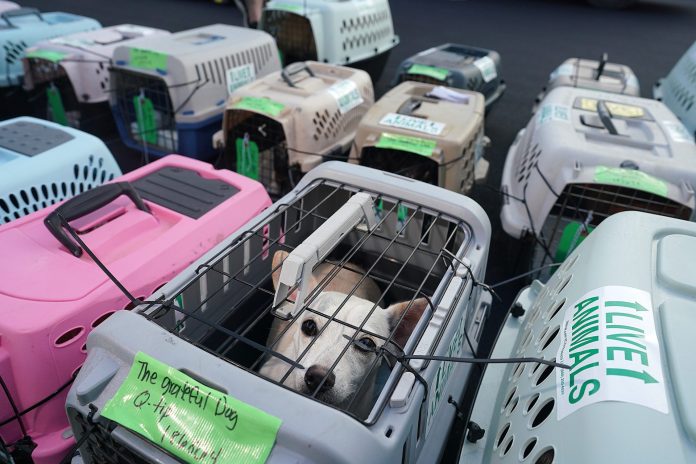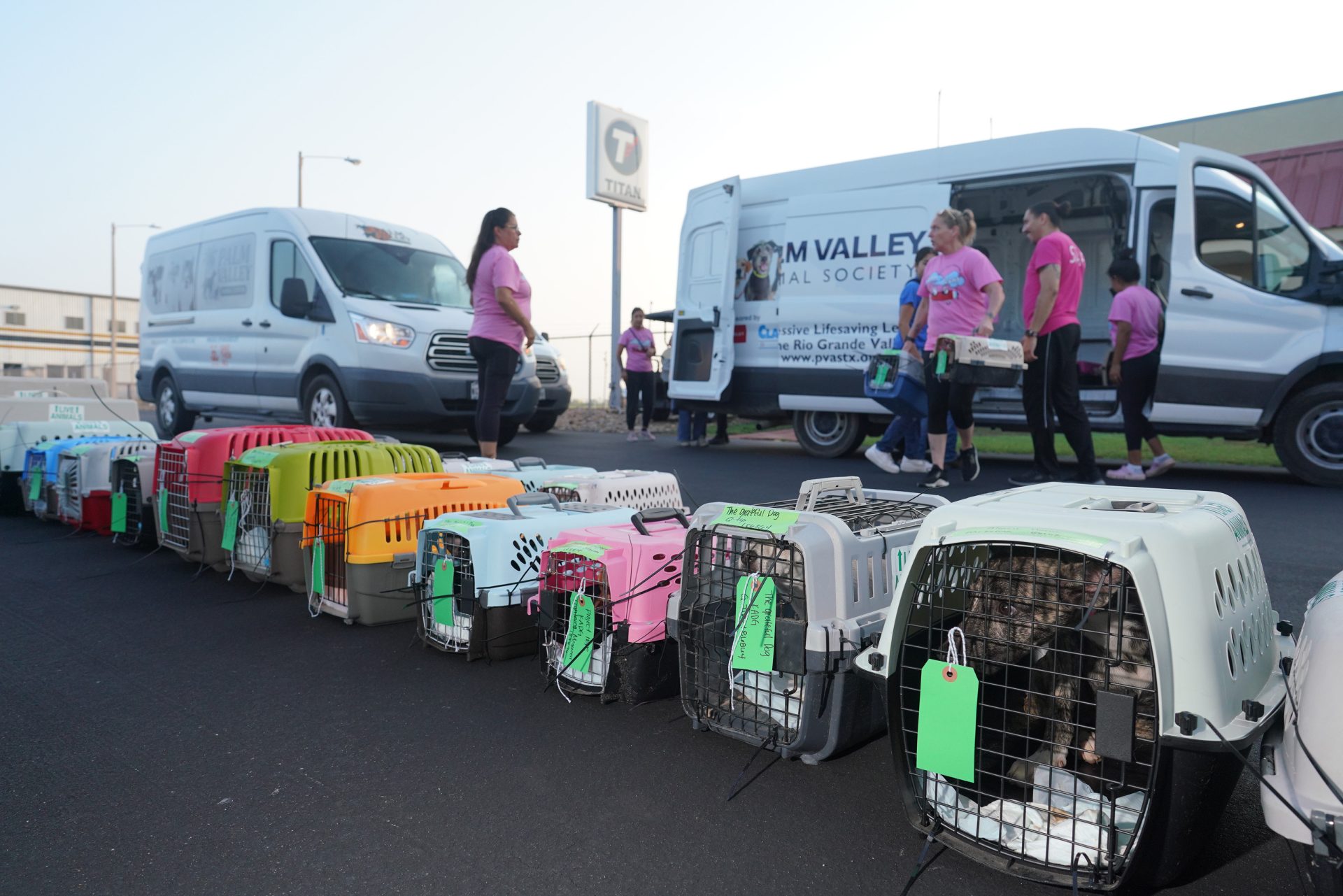
|
Only have a minute? Listen instead
Getting your Trinity Audio player ready...
|
McAllen animal lovers who not only have room in their hearts, but in their homes, for a large number of pets will soon have to register with the city if they want to continue housing them.
That’s because on Monday, city officials revisited the idea of a pet limit ordinance spurred after several large scale animal hoarding cases made headlines earlier this summer.
Under the new ordinance, which the McAllen City Commission approved unanimously Monday evening, residents will need to apply for a pet permit if they want to keep more than eight dogs or cats in their home.
There will be no cost to apply for the permit, but doing so will empower the city to conduct inspections at the homes where more than eight pets are kept.
“An officer from the animal care services would go out and look for the criteria laid out (in the ordinance),” McAllen Deputy City Attorney Austin Stevenson told to the commissioners.
Inspectors would check to ensure that a resident can provide adequate space, food, shelter and sanitary conditions for the excess number of pets.
They would also evaluate whether the animals produce nuisance levels of noise to nearby neighbors, and check to see that they are up-to-date on their vaccinations, Stevenson said.
Each “excess animal permit” will be valid for one year, and may be revoked or denied. Residents wishing to appeal a revocation or denial may do so in writing to the city manager.
Pet parents will be allowed to keep up to eight dogs or cats, or any combination thereof, as well as one litter of puppies or kittens before they need to apply for a pet permit.
Additionally, those fostering an excess number of dogs, cats, puppies or kittens in conjunction with a local animal welfare nonprofit, such as the Palm Valley Animal Society, will not need to apply for a pet permit.
The number of pets allowed without a permit, as well as the exception for fostered animals, represent changes to the ordinance since the city commission first considered setting a pet cap about three weeks ago.
At that time, the proposed ordinance capped the pet limit at six, and did not include exceptions for animal fosters.
The preliminary version of the ordinance also recommended charging residents $50 per permit.
But those provisions spurred questions from the commissioners and at least one member of the public during a July 22 meeting.

Commissioners also expressed concern over the absence of guidelines for how home inspections would be carried out, and what criteria would be evaluated during them.
Those concerns have now been addressed in the revised ordinance the commission approved on Monday, as illustrated by several paragraphs’ worth of red text shown in a copy of the ordinance that was included as part of the meeting’s agenda packet.
On Stevenson’s recommendation, the city will allow a six-month grace period before the pet limit ordinance fully goes into effect “to allow people to apply for the permits and to allow staff adequate time to conduct the inspections,” he said.
And though there won’t be any application fees initially, the revised ordinance does allow the city manager to set one in the future in the event the city needs to offset costs of administering the permit process.
In other animal related news, the city commission also approved a new two-year animal control contract with PVAS.
From Oct. 1 of this year through Sept. 30, 2026, McAllen will pay PVAS $79,166 per month to take in stray dogs and cats up to a maximum of about 208 animals per month.
That equates to $950,000 per year for a maximum of 2,500 animals per year, with the city paying $380 for each animal over that limit.
The city and PVAS have also agreed to cap the intake of large dogs — those weighing more than 20 pounds — at five per day, according to a city staffer.
“It’s because they’re limited on space and that’s one of the things that we had to discuss this year, albeit, there are cases and days where we exceed five,” the woman said in response to a question from District 3 Commissioner Omar Quintanilla about the large dog cap.
“With the current contract, we end up doubling animals into the kennels,” the woman said, before adding that the city has nonetheless decreased the number of animals being sent to the shelter.
“There was some resistance but people are now beginning to understand the severity of the problem that we have with stray animals,” the woman said.
It’s a problem the city has been working hard to solve, District 1 Commissioner Tony Aguirre said.
“We’re working together with the county and surrounding cities to try to have an adequate facility in the very near future,” Aguirre said.



